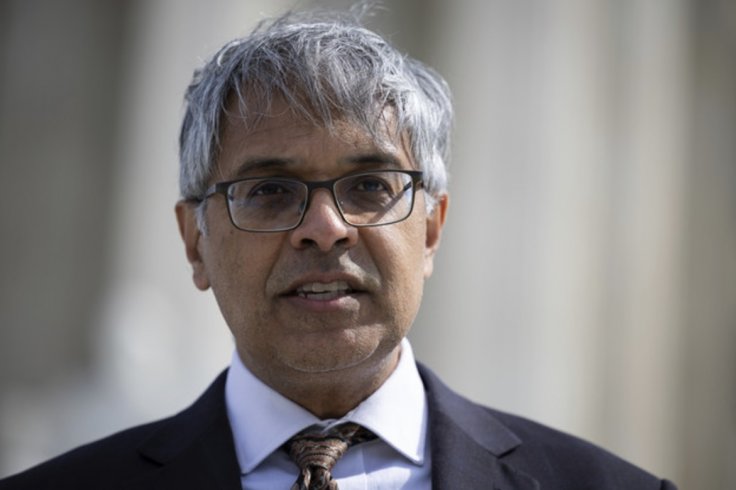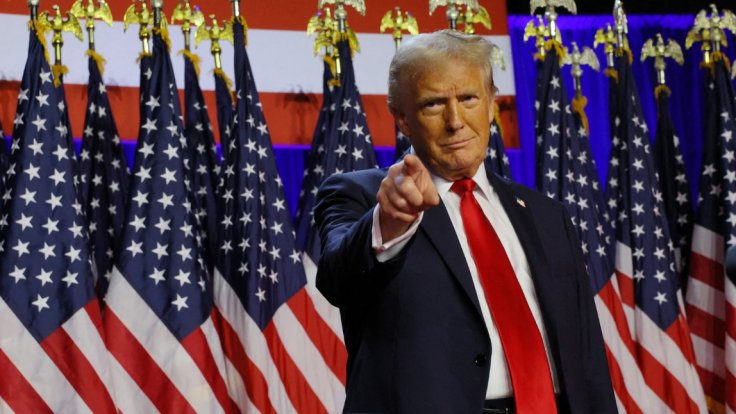President-elect Donald Trump announced on Tuesday that Jay Bhattacharya will take on the role of director of the National Institutes of Health during Trump's upcoming second term in office. Bhattacharya, a professor at Stanford University and a staunch critic of lockdown during the pandemic, will oversee the federal government's medical research initiatives.
He will work "in cooperation" with Robert F. Kennedy Jr., the incoming Secretary of Health and Human Services, in running the country's top public funder of medical research with a budget of around $47.3 billion. The Stanford physician and economist, met with Kennedy earlier this week and impressed him with his ideas and proposals to reform the NIH.
Biden's Critic Becomes Trump's Pick

"Jay co-authored the Great Barrington Declaration, an alternative to lockdowns proposed in October 2020," Trump said in his statement, referring to the open letter urging government leaders and public health officials to reconsider stringent Covid-19 measures.
Bhattacharya has advocated for shifting the agency's priorities to support more groundbreaking research while limiting the sway of some of its most senior career officials, the report said.

The 2022 "Twitter Files" exposé revealed that Twitter secretly added Bhattacharya to a "Trends Blacklist," blocking his tweets from trending due to his opinions on the pandemic.
"Together, Jay and RFK Jr. will restore the NIH to a Gold Standard of Medical Research as they examine the underlying causes of, and solutions to, America's biggest Health challenges," the 45th president added.
The Great Barrington Declaration promoted the concept of "focused protection," advocating that efforts to boost immunity should primarily target the most vulnerable populations, such as the elderly and immunocompromised, while imposing minimal restrictions on the general healthy population.
This approach suggested that without stringent restrictions, more people would contract Covid-19, develop antibodies, and contribute to herd immunity. As immunity spread, the virus would have fewer chances to infect those at high risk.

However, the proposal faced strong opposition from many mainstream scientists, including figures like Anthony Fauci and then-NIH Director Frances Collins, both of whom served in the Biden administration. Critics argued that the plan was reckless and could result in numerous avoidable deaths.
Bhattacharya later sued the government, accusing it of pressuring social media companies to suppress his views.
Trump Impressed by Bhattacharya
In 2023, a federal court ruled that the Biden Administration had pressured social media platforms to silence Bhattacharya and his co-authors. According to his resume, Bhattacharya earned his medical degree from Stanford University School of Medicine in 1997 and completed a doctorate in economics at Stanford in 2000.

Following Trump's announcement, Bhattacharya said he was "honored and humbled" by Trump's nomination. "We will reform American scientific institutions so that they are worthy of trust again and will deploy the fruits of excellent science to make America healthy again!" he wrote on X.
Bhattacharya's appointment will require Senate confirmation, which is likely to proceed smoothly given the Republican majority taking office in January.
The NIH, which employs around 20,000 staff across 27 institutes and centers dedicated to specific diseases and research fields, oversees major branches such as the National Institute of Allergy and Infectious Diseases, previously led by Anthony Fauci, and the National Cancer Institute.
The agency has faced criticism from Republican lawmakers for funding gain-of-function research at the Wuhan Institute of Virology in China prior to the Covid-19 pandemic. Fauci and former NIH Director Francis Collins have consistently denied being aware of U.S. taxpayer-funded scientists engaging in virus modifications to enhance infectivity at the Wuhan lab, where COVID-19 is believed to have originated.









